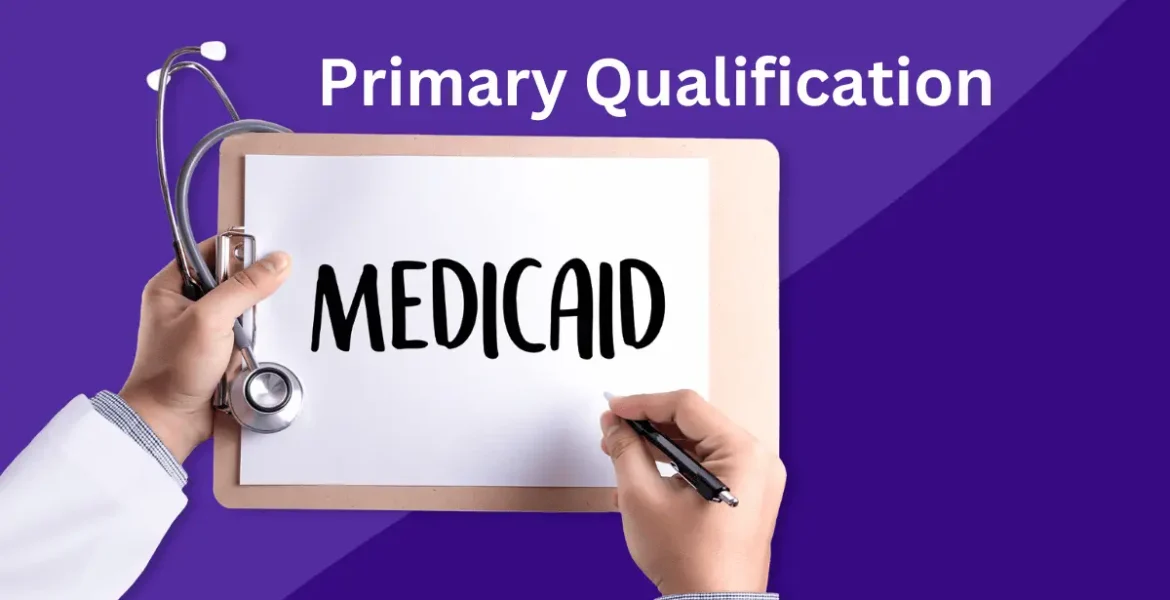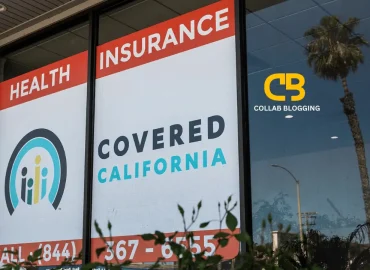Medicaid is a government program that provides health coverage to low-income individuals and families. The federal and state governments jointly fund it. Each state runs its own Medicaid program, so the rules can vary. Medicaid helps cover medical expenses like hospital visits, doctor’s appointments, and prescriptions.
To qualify for Medicaid, you must meet certain financial and personal requirements. The primary qualification is based on income and resources. Your income should fall below a certain level, which varies by state. Other factors, like your age, disability status, or pregnancy, may also affect eligibility.
Table of Contents
Medicaid Benefits
Medicaid benefits provide essential health coverage to those who meet the eligibility requirements. These benefits cover a variety of medical services, including doctor visits, hospital stays, prescription medications, and emergency care. Preventive services like vaccinations and screenings are also covered, along with additional services such as dental, vision, and mental health care in some states.
Medicaid ensures that low-income individuals, children, pregnant women, elderly adults, and people with disabilities can access healthcare they might not afford otherwise. Without Medicaid, many would struggle to pay for necessary medical care. The program eliminates financial barriers, allowing recipients to focus on their health instead of medical bills.
Medicaid improves health outcomes by making healthcare accessible to vulnerable populations. It reduces healthcare disparities and supports better health outcomes by providing timely treatment and preventing serious conditions.
Primary Qualifications for Medicaid
Income and Resource Limits
To qualify for Medicaid, individuals must meet specific income and resource limits. These limits can vary by state, but generally, your income should fall below a certain threshold, and the value of your assets, such as savings and property, must be limited. The exact limits depend on factors like family size and location.
Eligibility Based on Age, Disability, and Pregnancy
In addition to financial requirements, Medicaid covers certain groups such as children, pregnant women, elderly adults, and people with disabilities. Each group may have different eligibility rules, depending on age, disability status, or pregnancy. These criteria help ensure that vulnerable populations have access to healthcare.
State-Specific Guidelines
Each state has its own Medicaid program, meaning eligibility criteria may differ across states. States set their own income limits and additional requirements for Medicaid coverage, making it important to understand local guidelines when applying for benefits.
Access to Healthcare for Low-Income Families
Medicaid helps ensure that low-income individuals and families can access necessary healthcare services. It provides coverage for medical expenses such as doctor visits, hospital stays, and prescriptions, supporting better health outcomes for those in need.
How to Apply for Medicaid
- Check Eligibility: Before applying for Medicaid, check if you meet the program’s eligibility requirements. These requirements may vary by state, so it’s important to understand the income, asset, and other criteria specific to your location.
- Gather Required Documents: To apply, you’ll need to provide personal and financial documents, such as proof of income, identification, Social Security number, and details about your household. This helps determine your eligibility and the level of coverage you may receive.
- Submit Your Application: You can apply for Medicaid online through your state’s Medicaid website, by mail, or in person at a local Medicaid office. Many states also have phone services for assistance with the application process.
- Wait for Approval: Once your application is submitted, it will be reviewed. If approved, you will receive information about your Medicaid benefits, including the services covered and how to use them. If denied, you can appeal the decision.
- Maintain Eligibility: After enrolling in Medicaid, it’s important to keep your information up to date, especially if your income or household size changes. States typically require periodic reviews of eligibility to ensure you still qualify for benefits.
Medicaid Coverage and Services
Basic Healthcare Services
Medicaid provides coverage for a wide range of basic healthcare services, including doctor visits, hospital stays, surgeries, and emergency care. It also covers prescription medications and preventive services, such as vaccinations and screenings, to help maintain overall health.
Mental Health and Substance Abuse Services
Medicaid includes coverage for mental health services and treatment for substance abuse. This may include therapy, counseling, inpatient care, and medications necessary for managing mental health conditions or addiction.
Long-Term Care and Support Services
Medicaid also helps pay for long-term care services like nursing home care and home health care for individuals with chronic illnesses or disabilities. These services ensure that people can receive the care they need in a setting that is most suitable for them.
Dental and Vision Care (In Some States)
In some states, Medicaid offers dental and vision coverage, which may include routine checkups, cleanings, and treatments. The availability of these services varies by state and specific Medicaid programs.
Common Myths and Misunderstandings
1. Myth: Medicaid Is Only for the Elderly
Many people believe that Medicaid only provides coverage for elderly adults, but this is not true. Medicaid covers individuals of all ages, including children, pregnant women, people with disabilities, and low-income adults. Eligibility is based on financial need, not just age.
2. Myth: You Can’t Qualify if You Have a Job
Some people think they can’t qualify for Medicaid if they are employed, but this is not the case. Medicaid eligibility depends on income, not employment status. If your income is low enough, you can qualify for benefits even if you have a job.
3. Myth: Medicaid Doesn’t Cover Necessary Health Services
Another common misunderstanding is that Medicaid doesn’t provide comprehensive coverage. In reality, Medicaid covers a wide range of necessary health services, including doctor visits, hospital stays, prescription medications, preventive care, and mental health services.
4. Myth: Applying for Medicaid Is Complicated and Time-Consuming
Many people avoid applying for Medicaid because they believe the process is too complicated or time-consuming. However, applying is straightforward. Many states offer online applications, and assistance is available if you need help completing the process.
5. Myth: Medicaid Is Just a Temporary Program
Some believe that Medicaid is a temporary solution, but it is a long-term program designed to support individuals who need healthcare assistance over an extended period. Medicaid helps individuals access consistent and necessary medical care, even if their financial situation remains unchanged.
Conclusion
Medicaid is an essential program that provides healthcare coverage to low-income individuals and families. The primary qualification for receiving Medicaid benefits is based on financial need, including income and resources. Other factors, such as age, disability, and pregnancy, can also impact eligibility.
To apply for Medicaid, individuals must check their eligibility, gather necessary documents, and submit an application. Once approved, Medicaid helps cover a wide range of medical services, ensuring that those who need it most can access the care they deserve.








Get the facts
March 3, 2025 at 3:18 pmYour composition has a terrific style; I liked every word of it.
https://newcastle-times.vercel.app/2025/02/18/warnings-intensify-over-suspected-scam-calls-from-01615462901/
Jeannie
March 8, 2025 at 1:44 pmI found this post informative and well-written. Thanks for sharing your experience with your readers.
https://bos01.pics
Carmela
March 15, 2025 at 11:17 pmI enjoyed reading your article from start to finish. The author have kept me interested. Thanks for posting your thoughts.
https://atomizelink.icu
🛎 Notification; SENDING 0,75420529 BTC. Withdraw =>> https://graph.org/GET-BITCOIN-02-25?hs=5965238aabc1e61081b7f10a5829822a& 🛎
March 16, 2025 at 6:52 am3th1c9
Elijah
March 16, 2025 at 12:43 pmYou’ve addressed all the possible concerns someone might have about this topic.
https://quero.party
🛠 + 0.75624196 BTC.NEXT - https://graph.org/GET-BITCOIN-TRANSFER-02-23-2?hs=5965238aabc1e61081b7f10a5829822a& 🛠
March 19, 2025 at 3:49 pmiplg2t
📨 We send a transfer from us. Next =>> https://telegra.ph/Binance-Support-02-18?hs=5965238aabc1e61081b7f10a5829822a& 📨
March 19, 2025 at 5:46 pmqwscut
🔓 Ticket: TRANSACTION 1,778429 BTC. Confirm >>> https://graph.org/Message--0484-03-25?hs=5965238aabc1e61081b7f10a5829822a& 🔓
March 27, 2025 at 6:50 amqvbmcg
📲 + 1.69567 BTC.NEXT - https://graph.org/Message--685-03-25?hs=5965238aabc1e61081b7f10a5829822a& 📲
March 29, 2025 at 5:36 am5uwhl0
🔨 Ticket: Process 1,381043 bitcoin. Next >> https://graph.org/Message--05654-03-25?hs=5965238aabc1e61081b7f10a5829822a& 🔨
April 15, 2025 at 2:11 amqdt89k
📍 + 1.889579 BTC.GET - https://graph.org/Message--05654-03-25?hs=5965238aabc1e61081b7f10a5829822a& 📍
April 16, 2025 at 4:45 amsv7jss
Valerie
April 16, 2025 at 3:59 pmI’m really impressed together with your writing talents
and also with the format in your weblog. Is that this
a paid subject or did you customize it your self? Anyway keep up
the nice quality writing, it’s rare to see a nice blog like
this one nowadays. Lemlist!
Feel free to surf to my web blog :: TikTok ManyChat
bonanza
May 20, 2025 at 7:19 amHere, you can access a great variety of slot machines from leading developers.
Visitors can enjoy classic slots as well as modern video slots with high-quality visuals and bonus rounds.
Whether you’re a beginner or a casino enthusiast, there’s something for everyone.
casino slots
The games are instantly accessible 24/7 and designed for desktop computers and smartphones alike.
No download is required, so you can get started without hassle.
Platform layout is intuitive, making it convenient to browse the collection.
Sign up today, and enjoy the thrill of casino games!
LarryEnuck
July 23, 2025 at 10:57 amLaunched in 1972, the Royal Oak redefined luxury watchmaking with its iconic octagonal bezel and stainless steel craftsmanship .
Ranging from limited-edition sand gold to diamond-set variants , the collection merges avant-garde aesthetics with precision engineering .
Starting at $20,000 to over $400,000, these timepieces appeal to both luxury aficionados and aspiring collectors seeking investable art .
https://dirstop.com/story24503683/watches-audemars-piguet-royal-oak-luxury
The Perpetual Calendar models push boundaries with robust case constructions , embodying Audemars Piguet’s relentless innovation .
Featuring meticulous hand-finishing , each watch reflects the brand’s commitment to excellence .
Explore certified pre-owned editions and detailed provenance guides to deepen your expertise .
OliverVorce
July 27, 2025 at 10:23 amЖенская сумка — это неотъемлемый элемент гардероба, которая акцентирует внешность каждой женщины.
Она помогает переносить важные вещи и организовывать распорядок дня.
Благодаря разнообразию моделей и оттенков она создаёт ваш стиль.
сумки Guess
Это символ роскоши, который отражает социальное положение своей владелицы.
Каждая модель повествует историю через детали, подчёркивая внутренний мир женщины.
От миниатюрных клатчей до просторных тоутов — сумка меняется под любую ситуацию.
Winfordbus
July 27, 2025 at 1:46 pmБренд Balenciaga славится уникальными сумками , разработанными безупречным качеством .
Каждая модель обладает необычными формами , включая фирменный логотип .
Качественная кожа обеспечивают изысканность сумки.
https://sites.google.com/view/sumki-balenciaga/index
Популярность бренда увеличивается у знаменитостей , превращая каждую покупку частью стиля.
Ограниченные серии создают шанс обладателю выделиться в повседневке.
Выбирая сумки Balenciaga , вы приобретаете модный акцент , а также часть истории .
MiguelWeawl
July 30, 2025 at 12:58 pmHello, dedicated seekers of ultimate body harmony! I once yielded to the enchanting echo of quick-fix wellness wonders, holding onto them tightly whenever wellness warnings echoed. Yet, profound health truths unveiled, highlighting how they concealed threats to our core vitality, driving a soul-stirring journey for the essence of comprehensive healing and prevention. It invigorated my entire being, affirming that strategic, wellness-amplifying choices boost holistic recovery and preventive power, rather than jeopardizing our health equilibrium.
At the peak of wellness turmoil, I rejected outdated health norms, seeking revolutionary wellness discoveries that integrate mindful lifestyle shifts with evidence-based therapies. Prepare for the vitality-vaulting core: levitra online, where on the iMedix podcast we explore its profound impacts on health with transformative tips that’ll inspire you to tune in now and revitalize your life. It catalyzed a total wellness rebirth: healing accelerates with focused health awareness, careless overreliance weakens holistic defenses. This wellness drive propels me onward to captivate you with these vital health breakthroughs, positioning treatments as allies in health mastery.
Probing the core of wellness dynamics, I’ve discovered the vital key wellness supports should invigorate and protect, without compromising health autonomy. The wellness journey delivered endless health revelations, challenging you to overhaul ingrained wellness routines for peak physical and mental vitality. The wellness whisper you can’t ignore: balance.
BennieCib
August 2, 2025 at 5:17 pmShimmering liquid textiles dominate 2025’s fashion landscape, blending futuristic elegance with eco-conscious craftsmanship for everyday wearable art.
Gender-fluid silhouettes break traditional boundaries , featuring asymmetrical cuts that transform with movement across formal occasions.
Algorithm-generated prints merge digital artistry , creating one-of-a-kind textures that shift in sunlight for dynamic visual storytelling .
https://tagshag.com/read-blog/2080
Circular fashion techniques lead the industry , with biodegradable textiles celebrating resourcefulness without compromising bold design elements.
Holographic accessories elevate minimalist outfits , from solar-powered jewelry to self-cleaning fabrics designed for avant-garde experimentation.
Vintage revival meets techwear defines the year, as 2000s logomania reimagine classics through climate-responsive materials for forward-thinking style.
BennieCib
August 2, 2025 at 8:44 pmBold metallic fabrics redefine 2025’s fashion landscape, blending futuristic elegance with eco-conscious craftsmanship for runway-ready statements .
Gender-fluid silhouettes break traditional boundaries , featuring modular designs that transform with movement across casual occasions.
Algorithm-generated prints human creativity, creating hypnotic color gradients that react to body heat for personalized expression.
https://www.suchebiete.com/Jugendbekleidung/sb153972626/Entdecken-Welt-Luxusuhren–Exklusiv_Einzigartig_Unvergleichlich
Circular fashion techniques lead the industry , with biodegradable textiles reducing environmental impact without compromising bold design elements.
Holographic accessories elevate minimalist outfits , from nano-embroidered handbags to self-cleaning fabrics designed for modern practicality .
Vintage revival meets techwear defines the year, as 2000s logomania reimagine classics through smart fabric technology for timeless relevance .
Arturotup
August 3, 2025 at 8:54 amDie Rolex Cosmograph Daytona ist ein Meisterwerk der Uhrmacherkunst, vereint elegante Linien mit höchster Funktionalität durch seine Tachymeterskala .
Verfügbar in Weißgold überzeugt die Uhr durch ihre zeitlose Ästhetik und hochwertige Materialien , die selbst anspruchsvollste Kunden begeistern .
Mit einer Gangreserve von 72 Stunden eignet sie sich für den Alltag und behält stets ihre Genauigkeit unter jeder Bedingung .
Rolex Cosmograph Daytona 116500LN armbanduhren
Das charakteristische Zifferblatt in Schwarz betonen den luxuriösen Touch, während die kratzfeste Saphirglase Langlebigkeit garantieren .
Seit ihrer Einführung 1963 hat die Daytona ein Symbol für Ambition , bekannt durch den exklusiven Status bei Uhrenliebhabern weltweit.
als Hommage an die Automobilgeschichte – die Cosmograph Daytona verkörpert Innovation und bleibt als unverwechselbares Statement für anspruchsvolle Träger .
Richardhoons
August 3, 2025 at 12:13 pmThe Rolex Cosmograph Daytona Rainbow epitomizes luxury with its gradient sapphire dial .
Crafted in precious metals , it merges precision timing features with elegant aesthetics .
Available in small batches , this timepiece appeals to discerning collectors worldwide.
Cosmograph Daytona Rainbow shop
Every gradient stone on the bezel creates a spectrum that stands out uniquely.
Driven by Rolex’s precision-engineered automatic mechanism, it ensures reliable performance for daily wear .
An investment piece, the Daytona Rainbow reflects Swiss watchmaking heritage in every detail .
Williamsowly
December 25, 2025 at 10:28 amPremium watches continue to remain popular despite the rise of digital devices.
They are often seen as a symbol of status and refined taste.
Skilled engineering plays a major role in their lasting value.
Many luxury watches are produced using premium components.
https://www.suchebiete.com/Jugendbekleidung/sb153968441/Exklusive-Designermode-Ihren-einzigartigen-Stil-10024
They also represent a long tradition passed down through generations.
For collectors, these watches can serve as both practical items and valuable assets.
Classic aesthetics allows them to stay relevant across changing fashion trends.
As a result, luxury watches continue to attract admirers around the world.
Josephlep
December 25, 2025 at 4:47 pmНа данном ресурсе доступны свежие новости.
Пользователи могут быстро узнавать новости из разных сфер.
Новости публикуются постоянно, что дает возможность следить за событиями.
Администраторы портала следят за достоверностью информации.
Ресурс предоставляет разнообразные новости для интересующихся пользователей.
https://telegra.ph/Sankt-Peterburg-12-25-2
Информация подаётся наглядно и доступно, чтобы читатели быстро ориентировались.
Категории портала позволяют быстро находить интересующие новости.
В целом, сайт помогает оставаться в курсе событий для широкой аудитории.
RichardAbody
December 27, 2025 at 10:26 amДеятельность в области недропользования — это совокупность процессов, связанный с разработкой подземных богатств.
Оно включает добычу минерального сырья и их промышленное освоение.
Данная сфера регулируется установленными правилами, направленными на сохранение природного баланса.
Ответственное ведение работ в недропользовании помогает сохранять ресурсы.
общество экспертов России по недропользованию
Howardpak
December 31, 2025 at 5:40 pmDressing stylishly is essential for personal expression.
It helps express personality and boost self-esteem.
Well-chosen clothes influences how others perceive you.
In daily life, clothing can enhance personal image.
https://telegra.ph/Rick-Owens-12-25-2
A carefully curated wardrobe make social interactions easier.
It is important to consider personal preferences and suitability for the occasion.
Fashion trends allow people to refresh their wardrobe.
Ultimately, dressing stylishly completes your personal image.
RichardAbody
January 2, 2026 at 12:59 pmСфера недропользования — это комплекс работ, связанный с разработкой подземных богатств.
Оно включает добычу минерального сырья и их дальнейшую переработку.
Данная сфера регулируется установленными правилами, направленными на сохранение природного баланса.
Ответственное ведение работ в недропользовании помогает сохранять ресурсы.
Josephlep
January 8, 2026 at 7:47 pmHaving a stylish appearance is crucial for personal expression.
It helps express personality and feel confident.
A neat outfit influences how others perceive you.
In daily life, clothing can enhance personal image.
https://telegra.ph/Brunello-Cucinelli-12-25-2
Thoughtful clothing choices facilitate communication.
It is important to consider personal preferences and the context of the event.
Modern styles allow people to explore new ideas.
Overall, dressing stylishly completes your personal image.
Josephlep
January 9, 2026 at 8:13 amСтильная одежда имеет большое значение в формировании образа.
Она помогает подчеркнуть индивидуальность и чувствовать себя увереннее.
Грамотно подобранный образ создаёт впечатление окружающих.
В повседневной жизни одежда может придавать уверенность.
https://telegra.ph/Max-Mara-12-25
Хорошо подобранная одежда облегчает деловое общение.
При выборе одежды важно учитывать индивидуальные особенности и обстановку.
Мода дают возможность находить новые решения.
Таким образом, умение стильно одеваться положительно влияет на самоощущение.
AugustNef
January 12, 2026 at 6:13 pmСледить за своим стилем важно для создания первого впечатления.
Внешний вид помогает подчеркнуть индивидуальность и повышает уверенность.
Современный внешний вид влияет на восприятие окружающих.
В повседневной жизни одежда может повышать самооценку.
https://telegra.ph/Tom-Ford-12-29
Хорошо сочетаемая одежда упрощает деловые контакты.
При выборе стиля важно учитывать индивидуальные особенности и обстановку.
Мода позволяют находить новые решения.
В итоге, умение стильно одеваться помогает выглядеть гармонично.
Williamneund
January 14, 2026 at 11:45 amBeing well-dressed is important for building a personal image.
A thoughtful appearance helps express personality.
A neat look can improve self-esteem.
In everyday life, appearance often influences how others perceive you.
https://rentry.co/62er4qc5
Balanced style choices make social situations more comfortable.
It is important to consider one’s own comfort as well as the context.
Modern styles give people the chance to experiment with looks.
In conclusion, dressing stylishly supports a complete personal image.
Williamsowly
February 1, 2026 at 8:01 pmPremium watches continue to hold strong appeal despite the rise of smart technology.
They are often seen as a sign of prestige and refined taste.
Skilled engineering plays a major role in their lasting value.
Many luxury watches are produced using high-quality materials.
https://www.dnxjobs.de/users/LePodium
They also represent a deep history passed down through generations.
For collectors, these watches can serve as both wearable tools and collectible pieces.
Elegant styling allows them to stay relevant across changing fashion trends.
As a result, luxury watches continue to appeal to enthusiasts around the world.
Williamsowly
February 6, 2026 at 12:15 pmHigh-end timepieces continue to attract attention despite the rise of modern gadgets.
They are often seen as a symbol of status and refined taste.
Skilled engineering plays a major role in their lasting value.
Many luxury watches are produced using high-quality materials.
https://chicwow.yourkwikimage.com/2155808/prada_panier_%D0%BA%D0%BE%D1%80%D0%B7%D0%B8%D0%BD%D0%BA%D0%B0_%D0%B4%D0%BB%D1%8F_%D1%81%D0%BE%D0%B2%D1%80%D0%B5%D0%BC%D0%B5%D0%BD%D0%BD%D0%BE%D0%B9_%D0%B7%D0%BE%D0%BB%D1%83%D1%88%D0%BA%D0%B8
They also represent a rich heritage passed down through generations.
For collectors, these watches can serve as both practical items and long-term investments.
Timeless design allows them to stay relevant across changing fashion trends.
As a result, luxury watches continue to attract admirers around the world.